Eco-Cha Tea Club

Eco-Farmed High Mountain Oolong Tea | Eco-Cha Tea Club Tasting Notes
This crop of tea is the most recent growth picked from new branches on the trees that were allowed to grow for four months or so, similar to our recent batch of Traditional Hong Shui Oolong that we offered last month. As with last month's batch, this tea was also affected by the Green Leafhopper, and other pests. This is inevitable, given that this is an organic farm and the summer months are most susceptible to bugs!

Eco-Farmed High Mountain Oolong Tea | Eco-Cha Tea Club
We can see how naturally these tea trees are allowed to grow. It's a wholly different farming method than conventional farming, and the produce from a farm like this is also next level. In our perception, based on visiting tea farms in Taiwan for over 20 years, this source is a rare and precious find. The combination of a pristine geographic location with an ideal micro-climate for tea production, and the natural farming methods are just not to be found. In a word, we love this farms, as well as its caretakers!

Traditional Hong Shui Oolong Tea Tasting Notes | Eco-Cha Tea Club
The full flavored character reflects the mastery that evolved from pre-modern tea producing methods — which our friend learned from his grandfather as a teenager. It's a rich, fruity, complex flavor profile with classic mineral notes, and a vibrant, truly satisfying finish. This, this is the real deal when it comes to traditionally made Oolong Tea from Nantou County, Taiwan!

Traditional Hong Shui Oolong Tea | Eco-Cha Tea Club
Batch 58 of the Eco-Cha Tea Club is a Hong Shui Oolong made in the traditional fashion by our friend in his home factory in Phoenix Village, Taiwan. He let his family plot of tea behind their traditional 3-sided farmhouse continue to grow after spring harvest in April until the last few days in July. This allows the tea trees to rejuvenate by growing naturally during the most vegetative phase of their annual cycle. He then harvested just the tops of the new growth before pruning his trees for fall harvest.
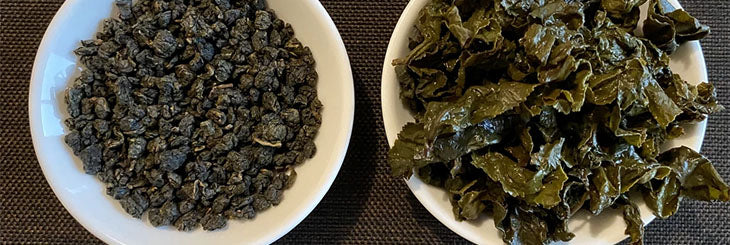
Top Award Winning Dong Ding Cui Yu Oolong Tasting Notes | Eco-Cha Tea Club
This batch of award-winning Dong Ding Cui Yu is made from well cultivated and skillfully processed tea leaves from the hybrid cultivar Tai Cha #13, or Tsui Yu (Cui Yu). Our friends then sorted the leaves to use only the best quality portion of this harvest to roast to perfection. The brewed tea offers a complex balance of fresh vibrant tea leaf character and toasted grains and nuts flavor notes, with a fruity/smoky finish. If you like a tea with a hearty character, this one's for you!
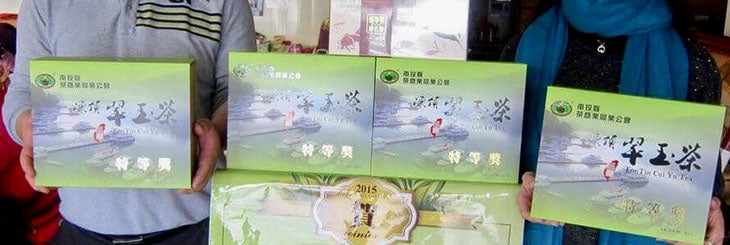
Top Award Winning Dong Ding Cui Yu Oolong | Eco-Cha Tea Club
Batch 57 of the Eco Cha Tea Club is a Top Award winning tea that was entered into the spring 2020 Nantou County Tea Trade Association's Dong Ding (Ton Tin) Cui Yu Oolong Tea competition. This association focuses on promoting tea production in lower elevation regions, namely Zhushan and Mingjian Townships in southern Nantou County. These towns are at the foot of the mountain below Lugu Township and the Shan Lin Xi high mountain tea growing region. Zhushan and Mingjian, along with Lugu are home to the densest population of tea makers in Taiwan.
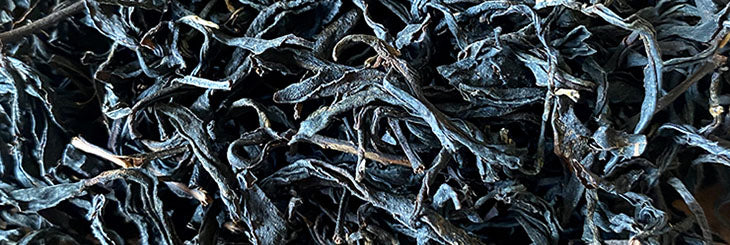
Pinglin Qin Xin Black Tea Tasting Notes | Eco-Cha Tea Club
Batch #56 of the Eco-Cha Tea Club is a Pinglin Qing Xin Black Tea — summer 2019 harvest, from the same source as last month's edition of award winning Wenshan Baozhong Tea. This is the first batch of Black Tea we have sourced from the Pinglin region in northern Taiwan, and it is further supporting evidence of the fact that high quality tea can be made from low to mid-elevation farms. We were lucky to have sourced the remainder of two consecutive days of last summer's harvest that were combined to provide just enough to be shared with the Eco-Cha Tea Club! Black Tea reaches it peak of quality after at least one year of aging.
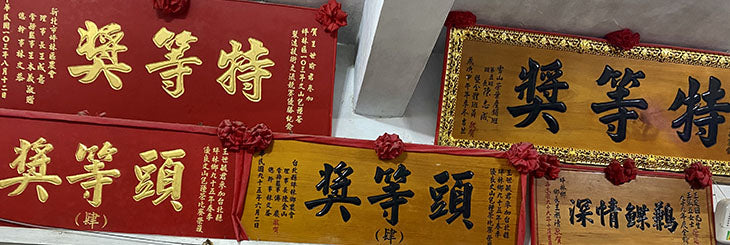
Pinglin Qin Xin Black Tea | Eco-Cha Tea Club
Batch #56 of the Eco-Cha Tea Club is a Black Tea made from the Qing Xin cultivar, grown in the Pinglin tea growing region in northern Taiwan. This Black Tea is made by the same artisan tea maker who made the top 5% award-winning Baozhong Tea we offered as Batch #55 of the Eco-Cha Tea Club. His spring and winter crops are made into Wenshan Baozhong tea, for which his family has a legacy, and his summer crops are made into high-grade Black Tea.
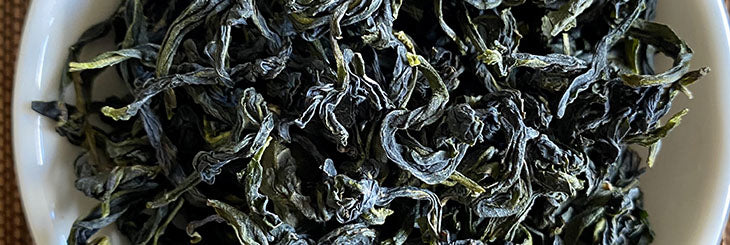
Competition Grade Wenshan Baozhong Tea Tasting Notes| Eco-Cha Tea Club
This is what an award winning Wenshan Baozhong Tea looks like, in its dry leaf state, of course. Notice the uniformity in the size and coloration of the leaves. The yellow hues are only in the spine of the leaves, which would naturally protrude into a stem, but the stems have been removed, along with the larger, lighter colored, over-matured leaf stock. This uniformity of leaf material offers a pure flavor profile. It allows for a complexity of aromatic and flavor notes, but it comes from a uniform stock which is essential in producing a purity of character. This is a fundamental aspect of competition grade tea. It's not muddled. It's refined.
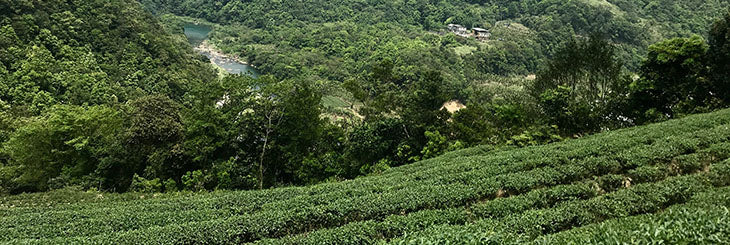
Competition Grade Wenshan Baozhong Tea | Eco-Cha Tea Club
Batch #55 of the Eco-Cha Tea Club is an award-winning Wenshan Baozhong Tea that was entered in the recent spring tea competition of the local Farmers' Association. Preparation for competition involves removing the bulkier stems from the leaves, and also sorting the leaves by coloration to achieve the most uniform stock of leaf material possible.
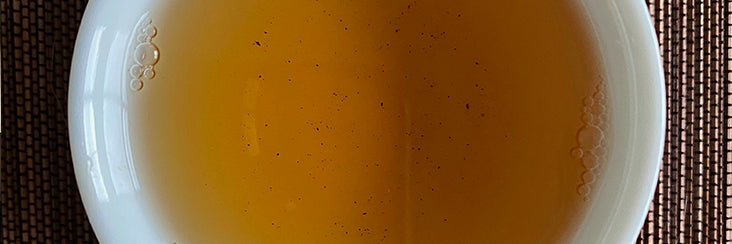
Honey Hong Shui Oolong Tasting Notes | Eco-Cha Tea Club
The Chinese "hong shui" means "red water", and the term has been adopted (or revived, depending on who you ask) as a name for heavily oxidized Oolong Tea. The name is used to designate a type of Oolong to stand on its own, and not be devalued by popular judging standards and marketing trends in Taiwan. The popular High Mountain Oolong Tea is a lightly oxidized tea with a bright golden, yellowish-green color. And even the competition standards set for Dong Ding Oolong Tea are a lighter golden-orange. But Hong Shui is, in fact, a proper tea on its own, and the level of oxidation is simply a variation in processing, not a fault or shortcoming in terms of its value. The processing methods to make this type of tea are actually how tea was made in Lugu (and many other places most likely), Taiwan, before tea became a commercial commodity.
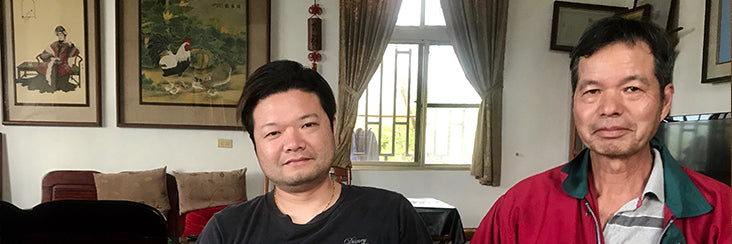
Honey Hong Shui Oolong Tea | Eco-Cha Tea Club
This month's batch #54 of the Eco-Cha Tea Club is a Honey Hong Shui Oolong Tea sourced from our friends who have provided our Dong Ding Oolong Tea and our Small Leaf Black Tea in recent years. They also made Batch #33 of the Eco-Cha Tea Club which we shared in August 2018. Batch #33 was similar to this month's batch in that they were both made with the help of the Green Leafhopper.

